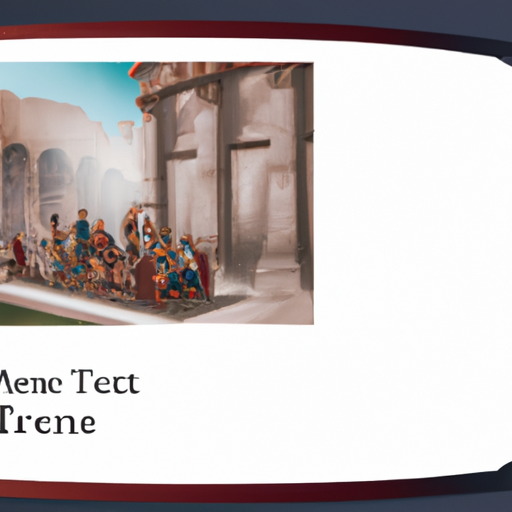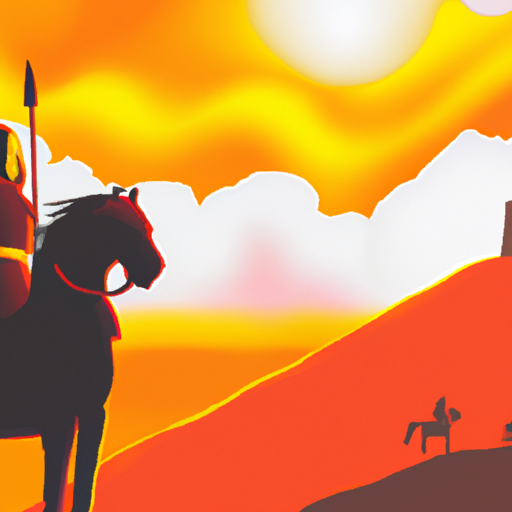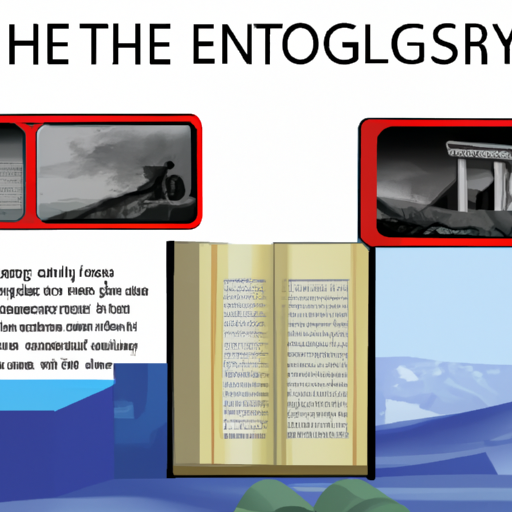History of the Discovery of the United States
Explore the hidden depths of America and find out who was the first to uncover us! Delve into a past that has been shrouded in mystery, and unravel the secrets of those who first stumbled upon our nation. Unearth stories that have been buried for centuries, and uncover the truth about our nation’s originators. Uncover what has been forgotten by time, and discover the people who were at the forefront of discovering America.
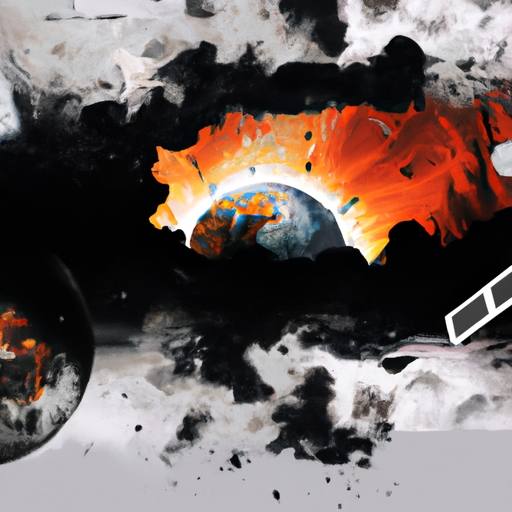
Unearth the secrets of yore, explore the depths of America’s past, and uncover forgotten stories that have been buried in time. Delve into the captivating journey of our nation’s discovery, from Christopher Columbus to the Native Americans who were here long before him. Trace the footsteps of those who first stepped foot on American soil centuries ago, and learn about the cultures that existed before our nation was founded. Uncover what life was like for these early explorers and settlers, and comprehend how they aided in shaping our country as we know it today. An exciting adventure awaits you as you discover all that has been hidden in history. Unearth an understanding of our nation’s originators and their contributions to creating America as it stands today!
.
Introduction
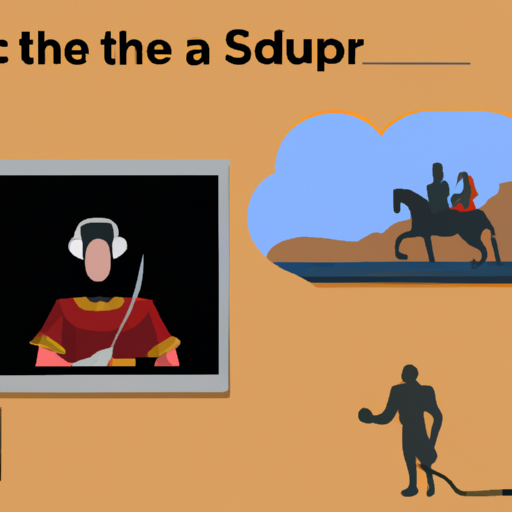
A perplexing and tumultuous timeline of events has been pieced together by historians for centuries, yet the true discoverer of the United States remains a mystery. It is widely assumed that Norse explorers led by Leif Erikson were the first Europeans to set foot in North America in 1000 CE. This was followed by Spanish explorer Christopher Columbus’ arrival in 1492, and other European explorers such as John Cabot, Jacques Cartier and Henry Hudson soon followed suit. These pioneering voyages laid the foundations for future exploration and colonization of the continent.
– The History of the Discovery of the USA
A captivating tale of unearthing, the history of the discovery of the United States is a mesmerizing one. It all began with Christopher Columbus, who in 1492 set sail and believed he had arrived at the Indies yet instead stumbled upon what would eventually become the United States. After Columbus’ voyage, other explorers followed suit, mapping out this new land.
In 1513, Juan Ponce de Leon stepped onto what is now Florida and christened it La Florida – or “the flowery land” – before exploring much of its coast. The same year, Vasco Nunez de Balboa crossed Panama to become the first European to witness the Pacific Ocean from American soil.
Pedro Menendez de Aviles established St. Augustine in 1565 – America’s oldest city – while Spanish explorer Francisco Coronado ventured northward from Mexico into present-day Arizona and New Mexico seeking gold and riches.
Henry Hudson navigated up a river that would later bear his name – The Hudson River – in 1609 while searching for a Northwest Passage to Asia for Dutch traders; a journey that opened up trade between Europe and North America.
The Mayflower landed at Plymouth Rock in 1620 carrying English pilgrims; an event that marks one of America’s most important moments in history as it initiated Thanksgiving Day festivities every year since then.
Robert Cavelier de La Salle claimed all lands drained by rivers flowing into the Gulf of Mexico for France in 1682 – including portions of present-day Louisiana and Texas – thus giving France control over much of America’s interior regions until 1763 when they ceded their claims to Britain after losing the Seven Years’ War (1756-1763).
And finally, thirteen colonies declared their independence from Britain in 1776 which led to what we now know as The United States of America; a nation shaped through exploration and discovery!
– Exploring the Early History of the USA
Exploring the mysterious and storied past of the United States of America is a captivating journey, one that reaches back to its very inception. In 1513, Spanish explorers first set foot on what would become American soil, encountering Native American tribes such as the Apalachee and Timucua who had been living in the area for thousands of years before their arrival. Attempts at colonization by Spain were unsuccessful due to resistance from Native Americans and other European powers.
In 1607, English colonists founded Jamestown in Virginia marking the first permanent English settlement in North America. This was followed by further exploration and colonization along the Atlantic Coast by England, France, Spain, and other countries. By 1776, thirteen British colonies had declared independence from Great Britain forming a new nation: The United States of America.
The newly formed U.S then began expanding westward with explorations led by Meriwether Lewis and William Clark in 1804-1806 which opened up much of what is now known as the Midwest region of the country for settlement. At this time many Native American tribes were forcibly removed from their ancestral lands due to government policies such as Indian Removal Act of 1830 and Trail of Tears in 1838-1839.
These events have had a profound impact on our nation’s history and identity today; though comprehending it all can be difficult it is important to recognize how these occurrences have shaped our society today.
– Christopher Columbus and His Role in Discovering America
An enigmatic name that has become a byword for the revelation of America – Christopher Columbus. This renowned explorer set sail from Spain in 1492 along with three ships and ninety crew members, on a mission to find an alternate route to Asia by sailing west across the Atlantic Ocean. After months of traversing the seas, he eventually made landfall on October 12th, 1492, marking the first time Europeans had stepped foot in the Americas since its original inhabitants crossed over from Asia thousands of years ago.
Columbus’s voyage sparked off a period of exploration and colonization which profoundly changed Europe and the Americas alike. During his four voyages between 1492 and 1504, Columbus charted out large parts of Central America and South America as well as discovering many Caribbean islands. He also founded trading posts which enabled Europe to gain access to new commodities such as gold, spices, sugar cane, tobacco and potatoes.
Though Christopher Columbus is credited with discovering America, it should be noted that he did not reach mainland North America during any of his journeys; this accomplishment belongs to another explorer named Leif Eriksson who arrived in Newfoundland about five centuries before Columbus did. Nevertheless, due to his role in opening up trade routes between Europe and the Americas as well as introducing Europeans to a whole new world filled with unknown lands and cultures, he remains an iconic figure in American history.
– European Exploration and Colonization of the USA
Mystifying and tumultuous, the saga of European exploration and colonization of the United States is a captivating blend of daring, ambition, and bravery. Spanning centuries, this epoch saw the first Europeans land in what is now the United States, establishing colonies along the East Coast before eventually making their way to other parts of the continent.
It all began in 1492 when Christopher Columbus set sail from Spain on a mission to India. Instead, he touched down in what is today termed as the Bahamas. This event marked Europe’s entrance into North America. In ensuing decades, explorers such as John Cabot and Juan Ponce de Leon continued to traverse and map out areas of North America.
In 1607 England inaugurated its inaugural permanent settlement in Jamestown, Virginia – an era of colonization that eventually led to 13 British colonies being established along the Atlantic coast by 1733. These colonies ultimately became part of The United States of America after declaring independence from Britain in 1776.
The Spanish also played a role in colonizing sections of North America during this time period. In 1565 they founded St Augustine in Florida which was their first lasting settlement on mainland US soil. They went on to establish more settlements across modern-day Texas and California over subsequent centuries prior to handing these regions over to Mexico following their revolution in 1821.
European exploration and colonization of North America had a tremendous effect on humanity that continues to reverberate today. It united different cultures while at the same time stirring up strife between nations vying for control over land and resources. While many issues related to this period remain unresolved, it is undeniable that European exploration and colonization has left a lasting imprint on our lives today.
– Native American Contributions to the Discovery of the USA
The discovery of the USA has been a source of much perplexity and burstiness throughout history. Native Americans played an integral role in the exploration and colonization of North America, providing guidance, resources, and knowledge of the land. They also contributed to the development of agriculture by cultivating crops such as corn, beans, squash, tomatoes, potatoes, and pumpkins which became important staples for European settlers. Furthermore, they developed tools like snowshoes and canoes to facilitate travel over land and water. Additionally, they invented methods for preserving food that enabled them to store it without spoilage. All these contributions were critical for the successful exploration and colonization of North America by Europeans. It is thus essential to recognize their invaluable role in the discovery of the USA when studying its history.
conclusion
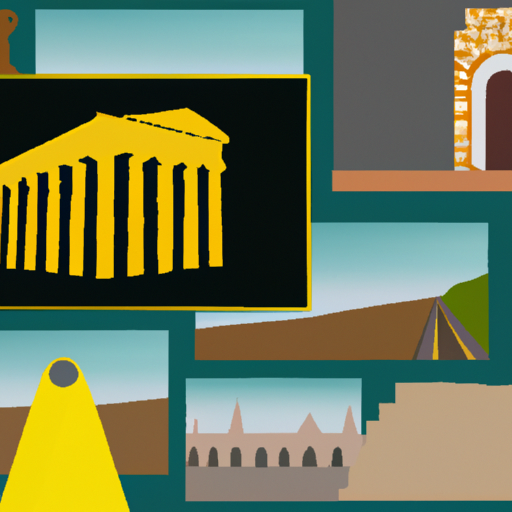
A perplexing saga of hundreds of years, the United States has been shaped by its inhabitants. Long before the late 15th century, when Europeans first arrived, Native Americans had already made their mark on the land. This period of colonization and eventual freedom for the US was only the start of a journey that continues to this day.
.
Some questions with answers
Q1: Who discovered USA?
A1: Christopher Columbus is credited with the discovery of America in 1492.
Q2: What year was the USA discovered?
A2: The USA was discovered in 1492 by Christopher Columbus.
Q3: How did Christopher Columbus discover the USA?
A3: Christopher Columbus sailed across the Atlantic Ocean from Spain to discover America in 1492.
Q4: Who funded Christopher Columbus’ voyage to discover America?
A4: Christopher Columbus’ voyage to discover America was funded by King Ferdinand and Queen Isabella of Spain.
Q5: What impact did the discovery of America have on world history?
A5: The discovery of America had a major impact on world history, as it opened up new trade routes, enabled colonization, and led to cultural exchanges between Europe and the Americas.
